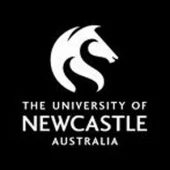
Bachelor of Computer Systems Engineering (Honours) / Bachelor of Mathematics
University of Newcastle
Type of institution: University/Higher Education Institution
Level: Undergraduate
CRICOS: 00109J
Computer systems engineers are experts in software development, electronic hardware design and networking. They design, build and test computer hardware and interface hardware to other equipment and networks. They also write the software with which the end user interacts. The Bachelor of Computer Systems Engineering (Honours) program covers the theoretical and practical knowledge required to create a computing system from inception. It enables students to innovate a computer system as part of an existing engineering system such as a controller of industrial plant or equipment. The degree focuses on underlying principles and techniques so that graduates are able to learn and apply new technologies as they emerge in the future. Mathematical skills are valuable wherever real world problems must be solved, including the areas of manufacturing and scheduling. The private sector needs statisticians in management and technical roles, finance, bioinformatics, biotechnology, health research, marketing, insurance, engineering and more. In addition, government agencies and research institutions employ statisticians to design, collect, analyse and interpret data. Computer Systems Engineering and Mathematics interact very closely with each other in some areas of particular importance. These include big data analytics, high performance, mobile and cloud computing. A student doing this double degree will not only gain expertise in the core areas of these disciplines, but also will have an extra advantage in the above areas of close interaction.
Structure
- The Bachelor of Computer Systems Engineering (Honours)/ Bachelor of Mathematics is a five year program, students are required to complete 410 units, which is comprised of: 310 units of Core Courses
- 60 units of Mathematics Directed Courses: 20 units are taken at the 2000 level
- 40 units are taken at the 3000 level
- 20 units are Computer Systems Engineering Directed Courses*
- and 20 units are Elective Courses**.
Subjects
- Computer systems engineering
- Mathematics
- Mathematics and statistics
- advanced computer systems and embedded systems
- advanced physics
- computer and electrical engineering
Standard entry requirements
Year 12 or equivalent. Alternative entry pathways may include approved TAFE studies, preparatory programs such as Newstep, Open Foundation or Tertiary Preparation Certificate. Assumed knowledge: HSC Mathematics (Band 5 or above) or equivalent. One science-related subject would also be an advantage (Physics or Chemistry preferred). Applicants who have achieved less than Mathematics Band 5 may be admitted to the program but may need to complete additional study to successfully complete the requirements of the program. Students who have completed HSC Mathematics General 2 may be admitted to the program but can expect to undertake additional studies to successfully complete the requirements of the program.
Recognition
This degree program is accredited by Engineers Australia and other affiliated international organisations.
Study pathways
Credit transfer agreements with TAFE NSW and other education providers are under continuous negotiation. A Bachelor of Mathematics (Honours) is available as an additional year to meritorious students.
Study information
| Campus | Fees | Entry | Mid year intake | Attendance |
|---|---|---|---|---|
| Callaghan | International: $202,000 |
| No |
|
Fee comments
Campuses: Callaghan.
Fees are indicative and subject to variation. Overall program fee may vary based on course selection.
Further information
It may not always be possible to complete this combined Engineering degree within 5 years. This combined Engineering degree is not available for midyear admission to International Students.





